The selection between framed vs frameless shower doors presents a difficult decision. The main difference between these two types of shower doors lies in their construction because framed doors feature metal edges but frameless doors provide a contemporary appearance. This guide provides an analysis of their features together with their advantages and disadvantages to assist you in selecting the appropriate bathroom door.
Keep reading to make the right choice!
What is a Framed Shower Door?
Framed shower doors are built with a visible metal frame that surrounds the entire glass panel. These doors typically use thinner glass, which requires extra support from the frame. While they’re generally more affordable and have long been considered a practical choice, they’re often seen as outdated when compared to the sleek, modern designs popular today. Framed shower doors are commonly used in new construction projects as a cost-effective, "builder-grade" solution. However, they may have a shorter lifespan and can be harder to keep clean due to the metal frame trapping moisture and grime over time.
Features of Framed Shower Doors
Framed glass doors are a popular choice for bathrooms. They combine support and practicality, making them durable and effective.
- The edges of framed doors receive their support from strong metal frames. The frames maintain stability while securely holding the thinner tempered glass in place.
- The tracks function as water seals to trap moisture within the shower space. These products excel at maintaining dry bathroom floors.
- Sliding door options are available in numerous designs which help maximize space in compact bathrooms and walk-in showers.
- The doors only open outward because of their structure, which limits movement but adds safety when stepping out of the shower.
- These doors use thinner glass than frameless ones which cuts costs by 10-15%. This can be budget-friendly for homeowners.
- The frame materials consist of aluminum together with other metal components. These materials show resistance to rust and corrosion which enables them to survive longer in wet conditions such as bathrooms.
- The caulking seals are added along the edges of frames to prevent water leaks over time.
- The product comes in different finishes including chrome and bronze which makes it easy to match with other bathroom fixtures and styles.
- The classic appearance of framed designs provides functionality for both bathtub doors and traditional setups.
Their solid construction makes them reliable for daily use without breaking the bank!
Common Uses of Framed Shower Doors
The best choice for small bathrooms or budget-friendly options is the framed glass door. The doors are commonly used in homes that have bathtubs or compact walk-in showers because sliding designs work best in these spaces.
Their sturdy frames make them easy to install, even as a DIY project, saving both money and time.
Homeowners select these doors because they provide both durability and affordable pricing. The built-in seals on the metal frame edges provide reliable water resistance to these doors. The 20-year lifespan of framed options makes them suitable for long-term use because they require minimal replacement.
A good design should combine style with function—and framed doors for shower nail it.
Their ability to support thinner glass makes them cost-effective while keeping safety intact. This durable option transitions seamlessly into modern and traditional bathroom styles alike, proving their versatility shines across many setups.

What is a Frameless Shower Door?
A frameless shower door consists of thick glass which maintains its strength without any metal frame. The frameless design creates an open and sleek bathroom appearance that allows more natural light to enter.
Features of Frameless Shower Doors
Frameless shower doors create a contemporary appearance. These doors provide a transparent appearance which suits any bathroom design.
- The tempered glass material makes these products strong enough to withstand impact without requiring additional structural support from a thick frame.
- The system is available in swing doors or sliding panels for flexibility in design and space use.
- Show off tiles or stonework since there’s no frame blocking the view.
- Easier to clean because grime does not collect in frames or seals.
- The door can open both inward and outward which provides more convenience in tight spaces like walk-in showers.
- The design provides a harmonious appearance which creates an illusion of expanded space and increased brightness in bathrooms.
- The installation requires exactness because these heavy materials need proper framing to maintain safety standards.
- The cost of these options is usually higher than framed options because they require thicker glass and more detailed installation.
- The frames resist corrosion better because they do not contain metal structures that could rust with time.
- HOROW offers these designs in various styles that will fit different bathroom sizes and designs.
Common Uses of Frameless Shower Doors
Modern bathrooms feature frameless shower doors as their primary design element. The doors provide a perfect fit for walk-in showers while creating an open and sleek appearance. Homeowners select these doors for small spaces because the unbroken glass pane creates an open feel.
These doors also work well in luxury setups like neo-angle styles or frameless glass shower cubicles. Hotels and upscale homes often prefer frameless enclosures because they add elegance while reducing cluttered hardware.
The reduced number of components makes cleaning operations both fast and simple which benefits people who have limited time.
A frameless door transforms any bathroom into a masterpiece of simplicity.
How Long Do Frameless Shower Doors Last?
When deciding between framed vs frameless shower doors, one common question is: How long will these shower doors last? Understanding the differences between framed and frameless shower doors can help you choose the right shower door for your bathroom.
Framed glass shower doors often use thinner glass supported by metal frames, which can corrode or loosen over time, making them less durable. Traditional framed enclosures tend to be less expensive than frameless options but may require more frequent repairs or replacement.
In contrast, frameless shower doors are made from thick, tempered glass with minimal hardware, creating a sleek, modern look with seamless glass panels. The installation of your frameless glass shower door involves fewer parts that can wear out, meaning frameless doors offer superior durability and longevity.
Thanks to the glass used for frameless doors and the absence of bulky frames, frameless shower doors are more resistant to rust, wear, and mold buildup around the door and frame areas. With proper shower door installation and regular maintenance—such as keeping the glass clean and checking seals—a frameless shower enclosure can last 20 to 30 years or more.
Whether you choose a pivot shower door, sliding doors, or a semi-frameless shower door, the pros and cons of frameless vs framed clearly show frameless doors provide better fit, function, and style. Frameless doors offer a modern look that’s both practical and aesthetically pleasing, making them the preferred option for many homeowners choosing between framed and frameless glass doors.
Overall, while doors are more expensive upfront, frameless shower doors deliver lasting value, enhanced safety, and an elegant appearance for your shower space. So, when considering your type of shower door and the variety of glass door options, it’s safe to say that frameless shower doors offer excellent durability and timeless style compared to framed enclosures.

Core Differences: Framed VS Frameless Shower Doors
Shower doors exist in two forms: framed and frameless. The two types of shower doors differ in their appearance and price and maintenance requirements. The differences between these two types of shower doors will affect your bathroom's style and functionality.
Frameless vs Framed Shower Doors: A Quick Comparison Table
| Feature | Framed Bath Doors | Frameless Shower Doors |
| Appearance | Traditional, structured | Modern, open, sleek |
| Cost | Lower | Higher |
| Installation | Easier | Requires expertise |
| Cleaning & Maintenance | More effort | Easier |
| Customization | Limited | Highly customizable |
| Water Sealing | Strong | Requires precise sealing |
| Glass Thickness | 4mm-6mm | 8mm-10mm |
Design and Appearance
The frameless shower glass design creates a contemporary aesthetic. The bathroom appears spacious and open because of its clean lines which create a spa-like atmosphere. The design works well in contemporary settings and minimalist rooms.
Framed type of glass doors typically fit well with traditional bathroom designs. The thick metal frames of these doors create bold accents which match existing fixtures.
The frameless design reveals more tile work and details in your bathroom. The bulkier edges of framed designs sometimes block these views. The frameless design provides smooth finishes without visible hardware while the framed design shows defined lines from its metal support.
The following section discusses structural support and installation differences between the two styles.
Structural Support and Installation
The support structure of supported shower door consists of aluminum or steel materials. The frame supports thinner glass which allows for fast and simple installation that typically takes between 1.5 to 2 hours. The straightforward installation process and minimal tool requirements make framed shower doors a popular choice for DIY home improvement projects.
The installation process for frameless glass shower enclosures requires more time which typically lasts between 3 to 4 hours. The installation of thick tempered glass requires strong wall anchors and exact positioning. Professionals should handle this installation because of its complicated nature.
Moving forward, think about how materials affect durability and design choices.
Glass Thickness and Material
The strength of frameless shower enclosures increases with thicker glass installation. The enclosures use tempered glass which ranges in thickness from ⅜-inch to ½-inch. The door maintains stability through frameless design but the exposed edges create a higher chance of breakage.
The second type of shower door uses thinner tempered glass. The thickness is around ¼ inch because the metal frame provides extra support. This thinner material lowers costs by about 10-15%.
The two styles share a common focus on safety and durability but they fulfill different design requirements for bathroom spaces.
Cleaning and Maintenance
Shower doors that are framed require additional maintenance. The metal frame of the shower door collects soap scum and water which results in grime accumulation. The accumulation of grime will eventually lead to mildew or corrosion problems. The frame and seals require frequent scrubbing for proper cleaning and maintenance.
The maintenance of frameless glass shower doors proves to be simpler than other options. The absence of frames and seals reduces the likelihood of soap residue accumulation. Daily squeegee cleaning of glass surfaces prevents spot formation.
The easier maintenance process reduces work while maintaining your walk-in shower doors in a sleek appearance for longer periods.
Cost and Budget Considerations
The cost of supported shower door falls within the range of $300–$400. The product offers affordable pricing for those with limited budgets while delivering satisfactory performance. The combination of lightweight glass and basic installation requirements makes the product affordable.
The price range for frameless shower doors extends from $900 to $1,500. The thicker glass and more detailed installation add to their price tag. They are more expensive but they look sleek and modern and fit perfectly into modern bathrooms.
Pros and Cons of Framed Shower Doors
Framed glass shower doors provide good support and work well in most bathrooms. However, they can be more difficult to clean and are not as sleek as frameless options.
Pros of Framed Shower Doors
They are a classic choice for bathrooms. Supported shower door have several perks that make them popular.
- The cost of frameless shower doors is higher than framed options, typically 10-15% more expensive. This makes them more expensive for many homeowners.
- The frame provides additional support which enables the use of thinner glass. This means they are often lighter and more affordable.
- The installation process is straightforward and people can perform it themselves without needing professional assistance. The cost of installation remains lower when homeowners choose to do it themselves.
- A tight seal helps keep water inside the shower area. This reduces leaks and mess in your bathroom.
- The market offers various designs which include sliding tub doors together with hinged models. These products will fit with bathroom decorations of any style.
- The solid construction of these doors provides durability throughout their lifespan. The frames show better resistance to chipping and cracking when compared to certain frameless door types.
- The frames help water run off the glass better which makes cleaning easier and reduces residue.
- The aluminum frames show resistance to corrosion which extends their lifespan in bathroom environments with high humidity.
- These doors work well in smaller spaces like tub-shower combos or narrow walk-in showers due to their compact design options.
- Lowes and Home Depot stores offer various affordable supported shower door which are readily available for home projects.
Cons of Framed Shower Glass Doors
Shower doors that are framed have their appeal but they do have their disadvantages. Knowing these can help you determine if they are the right choice for your bathroom.
- The frames tend to corrode with time especially in bathrooms with high humidity. This can make the door look worn and unattractive.
- Soap scum and mildew tend to build up around the frames. Cleaning this area can be tricky and time-consuming.
- The doors swing outwards which could be a drawback in confined areas such as small bathrooms or walk-in showers.
- Their look leans toward traditional styles, which may not suit modern or contemporary designs.
- The glass is thinner because of the frame but it doesn’t feel as sleek or sturdy as thicker frameless glass.
- The seals and gaskets on framed doors will eventually wear out which results in water leaks outside the shower area.
- The devices typically have reduced weight but depend on external hardware components for stability which results in certain models appearing bulky or outdated.
- The repair of enclosed shower door proves more difficult because replacement of entire frame components and seals becomes necessary instead of simple quick repairs.
- The limited design options create difficulties when trying to match them with specific bathroom themes or custom features including seamless shower doors.
Pros and Cons of Frameless Shower Doors
Frameless shower doors create a contemporary aesthetic that enhances bathroom design. These doors provide modern bathroom style but users should be aware of their advantages and disadvantages.
Pros of Frameless Shower Doors
Frameless shower doors create a contemporary bathroom appearance while providing a modern aesthetic. They are stylish, practical, and easy to maintain.
- The design provides a clean and seamless appearance which allows your shower tiles or stonework to be the main focus.
- The space will appear larger when you allow more light to enter.
- The design should include adaptable door movement by allowing doors to open both inward and outward.
- The frames are absent which makes cleaning easier because dirt tends to accumulate in frames.
- The product features thick durable glass construction which provides enhanced safety features and extended product lifespan.
- Open up the space by removing the heavy frames that are typical of traditional designs.
- High-end bathroom designs add value to homes through their luxurious appearance which is typically found in luxury residences.
Cons of Frameless Shower Doors
Frameless shower doors present a modern appearance but they have certain disadvantages. The following problems may cause you to reconsider frameless shower doors for your home installation.
- The high price stands as a major issue. The high cost of frameless shower doors stems from their thicker glass material and complex installation requirements. The price of frameless shower doors exceeds framed options by hundreds of dollars.
- The risk of breakage is higher. The exposed edges and reduced support make accidents or shattering more likely.
- The stability of these doors is not as good as framed doors. The glass is only held by hinges and clips, which makes it feel less sturdy.
- The installation process proves challenging and typically requires expert assistance. Your project will require additional time and financial resources because of this.
- The cleaning process becomes frustrating because these surfaces do not have frames to contain water drips. Clear glass surfaces tend to develop water spots at a faster rate.
- They aren’t ideal for every budget-friendly remodeler. Cheaper options like tub sliding doors or framed alternatives fit tighter budgets better.
Choosing the Right Shower Door for Your Bathroom
Choosing framed or frameless glass door for shower determines the complete bathroom aesthetic. Consider the available space and choose the design that matches your bathroom best.
Space and Style Considerations
Small bathroom spaces should use enclosed shower door as their preferred choice. These doors require minimal space while working well with sliding door configurations. The framed design options complement standard bathroom fixtures to create a unified appearance.
Frameless glass enclosures work best for larger spaces and modern rooms. The open design of these enclosures produces an airy atmosphere which works well for walk-in showers. The frameless design creates a luxurious look but requires additional space to display its clean lines.
Budget and Durability Factors
The initial cost of enclosed shower door begins at $300 to $400. The price range for frameless shower doors extends from $900 to $1,500. The main distinction exists between materials and design choices. The construction of framed doors incorporates metal support with lighter glass.
The frameless version employs thicker glass which provides durability yet increases the overall cost.
The lifespan of these doors differs significantly. A properly maintained enclosed shower door can survive for about 20 years. Frameless designs tend to last longer than framed designs because they have fewer parts and stronger glass material.
Your wallet and long-term needs should guide the choice between the two options.
Designed to elevate the style and function of any bathroom, HOROW’s frameless sliding shower doors combine modern elegance with practical performance. Ideal for walk-in showers or tub enclosures, HOROW frameless shower doors are not only easy to maintain but also add lasting value to your home—making them a smart investment for modern bathroom upgrades.
Conclusion
The selection between frameless and framed shower doors depends on your needs. Frameless doors create a contemporary aesthetic but their price point is higher. The framed options provide budget-friendly and sturdy solutions but they lack stylish appeal.
Consider your space and style and budget before selecting one. Both can make your bathroom shine in their own way. Choose the one that fits your home the best.
FAQs
1. What type of shower door Is the safest?
When it comes to safety, framed shower doors made with toughened or tempered glass are considered the most secure option. The combination of heat-strengthened glass and the added support of a sturdy metal frame provides extra stability and impact resistance, making these doors ideal for families or high-traffic bathrooms.
One of the biggest advantages of glass enclosures—framed or frameless—is their durability. Tempered glass is designed to resist breakage, and even if it does break, it shatters into small, blunt pieces to reduce the risk of injury.
Whether you're prioritizing safety, strength, or long-term performance, glass shower doors remain one of the most reliable choices for modern bathrooms.
2. Why are frameless showers more expensive than framed ones?
Frameless shower doors tend to cost more than framed options because they use thicker, high-quality tempered glass to stay structurally sound without the support of a metal frame. Additionally, they require heavy-duty hardware—such as hinges, brackets, and handles—to securely hold the glass in place. This combination of premium materials and precise installation contributes to the higher overall cost. However, many homeowners find the sleek, modern appearance and long-term durability well worth the investment.
3. Should I get a frameless or framed shower door?
Framed shower doors typically use thinner glass and feature metal frames, giving them a more traditional and sometimes outdated appearance. They are often installed as cost-effective, “builder-grade” options in new homes but tend to have a shorter lifespan due to the metal framing.
In contrast, frameless shower doors use thicker tempered glass and minimal hardware, creating a sleek, modern look. They offer a better fit, improved functionality, and a more elegant design, making them a popular choice for contemporary bathrooms.
4. What’s the main difference between frameless and framed shower doors?
The main difference between frameless and framed shower doors is that frameless shower doors are made of thick glass without any metal frame whereas framed shower doors have a metal frame that supports thinner glass.
5. Are frameless shower doors better for walk-in showers?
Frameless glass enclosures have become a preferred choice for walk-in showers because they provide an unobstructed view and help expand the appearance of smaller bathroom spaces.
6. Are frameless shower doors safe?
The glass used in frameless doors is thick tempered safety glass which is made to withstand breakage.
7. Can I install a frameless door on my bathtub instead of a curtain?
You can replace your curtain with bathroom frameless shower doors or even non-glass options if you prefer something different.
8. What thickness of glass is best for frameless shower doors?
The recommended thickness for tempered glass in frameless models should be between 8mm to 10mm for maximum strength and visual appeal.

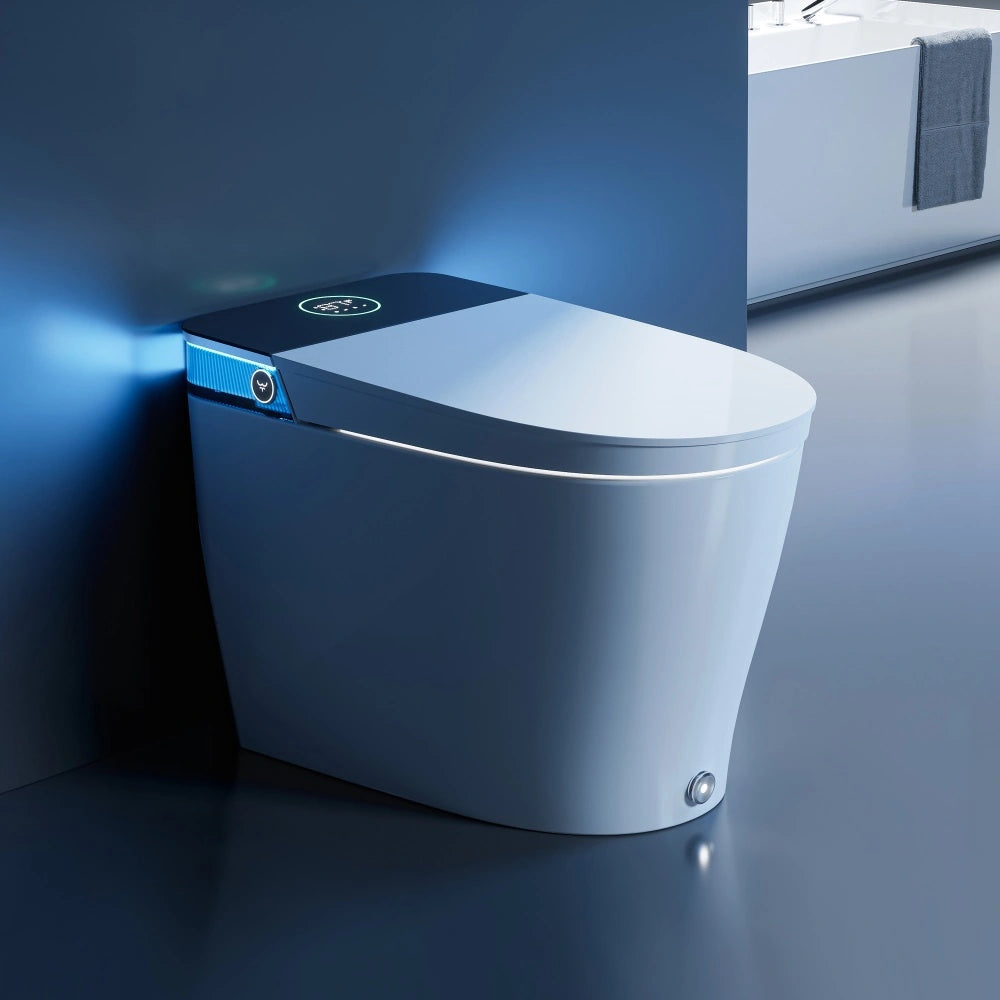
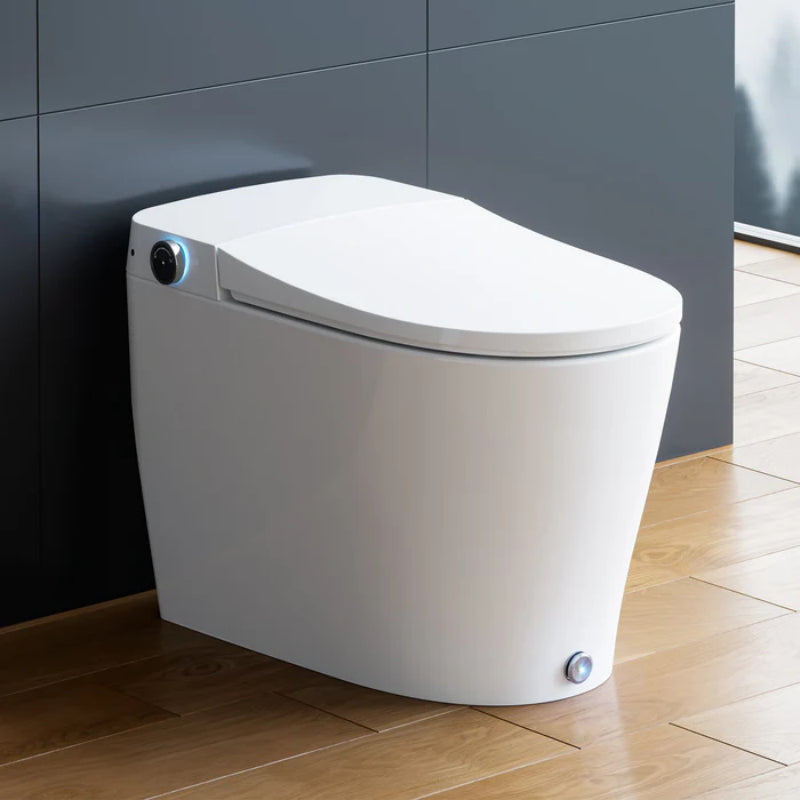
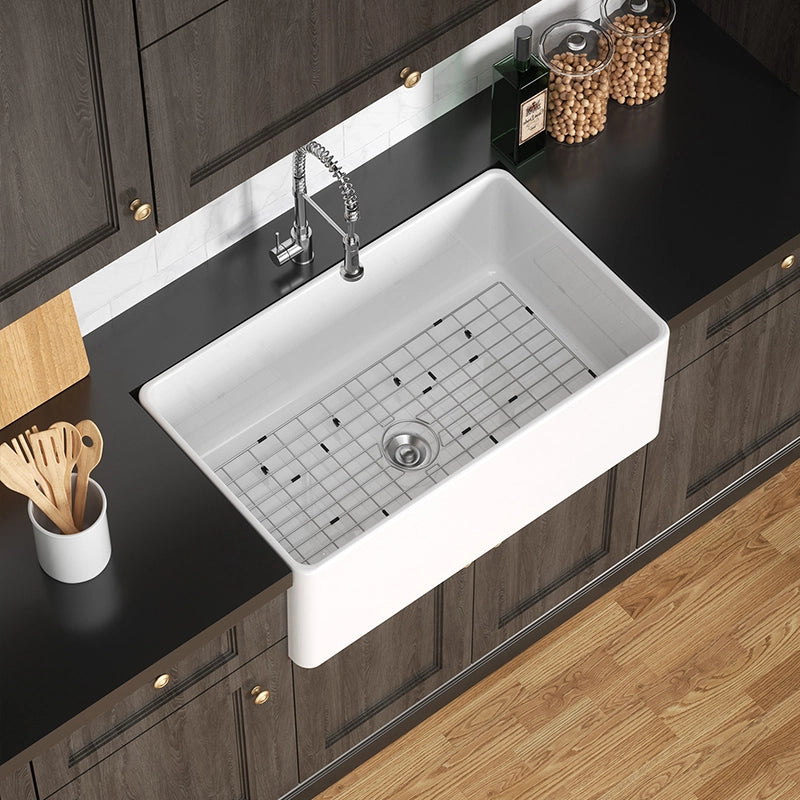
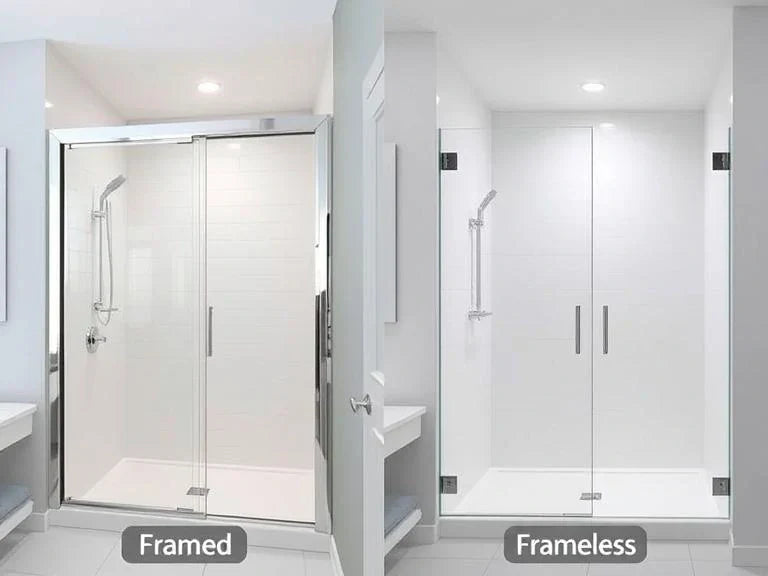


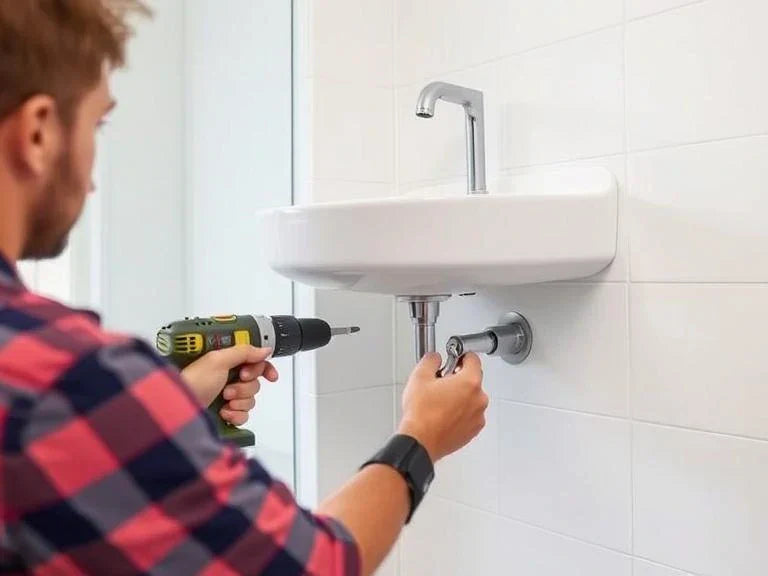

Leave a comment
This site is protected by hCaptcha and the hCaptcha Privacy Policy and Terms of Service apply.